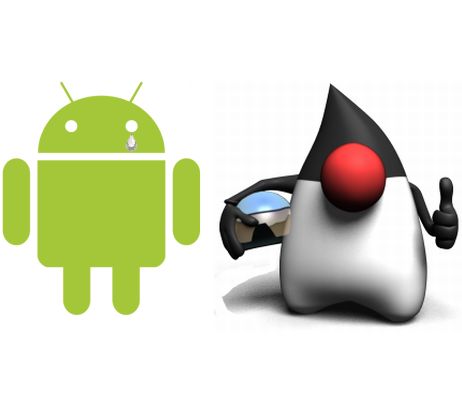Oracle Seeks Early Trial Against Android To Stop Developer Drift

Oracle has asked for a trial as early as January in its case against Google, because Java is losing ground to Android
Oracle is pushing for a trial as early as January in its antitrust case over its Java code being used in Google’s Android operating system, according to court documents. The company said that it is concerned that Java is losing ground to Android and the faster it can seek relief, the better.
In a post about the filing, Florian Mueller, author of the FOSS Patents blog, said Oracle and Google filed a joint pre-trial statement to US District Judge William Alsup detailing their request for a trial date, among other things.
Google pitching for time
A trial was initially slated for the end of October 2011, but the court had a scheduling conflict. Google has said that it could be ready for a trial as late as July 2012.
 Mueller (pictured) said, “The most interesting part of Monday’s filing is the one that proposes different trial dates. Oracle asks for the trial to begin as soon as the court-appointed damages expert has submitted his report. That report is due January 19, 2012. Pretty much everything else is already in place for a trial. Oracle therefore ‘proposes that this case go to trial on January 20 or 23, 2012’.
Mueller (pictured) said, “The most interesting part of Monday’s filing is the one that proposes different trial dates. Oracle asks for the trial to begin as soon as the court-appointed damages expert has submitted his report. That report is due January 19, 2012. Pretty much everything else is already in place for a trial. Oracle therefore ‘proposes that this case go to trial on January 20 or 23, 2012’.
“Google denies that it’s stalling and formally says that it ‘also proposes trying this case as early as possible’, but, given the complexity of the case and unspecified ‘scheduling issues for the Court, the parties, and counsel’, it argues that starting in January must be ruled out entirely and says that it may even be ‘difficult to conduct trial before July 2012.'”
Oracle claims that a trial needs to be held as soon as possible for the company to avoid further irreparable harm. Google continues to work to delay the case, asking that the court stay the case pending the result of ongoing patent re-examinations.
Oracle argues that not only is the company witnessing a mass migration of device manufacturers to Android, but that Java developers are following and turning to Android as well. Mueller pointed to this excerpt of Oracle’s filing:
“Android’s growth in the mobile device market has been exponential, steadily diminishing Java’s share. For instance, Amazon’s newly-released Kindle Fire tablet is based on Android, while prior versions of the Kindle were Java-based. Android has been gaining in other areas as well, with Android-based set-top boxes and even televisions appearing this year.
“These are markets where Java has traditionally been strong but is now losing ground to Android. The longer Android is allowed to continue fragmenting the Java ecosystem, the more serious the harm to Java becomes, and the more difficult it is to try to unwind. Oracle suffers harm in the form of lost licensing opportunities for its existing Java platform products, and the enterprise-wide harm from fragmentation of Java, which reduces the ‘write once, run anywhere’ capability that has historically provided Java such great value.”
Yet, Google argues that, in its own marketing, Oracle claims that Java boasts nine million developers and growing. Oracle acknowledges that Android has increased the number of Java developers in the world, but Oracle does not benefit from that because Android is an unlicensed and incompatible form of Java.
The judge’s ruling on the trial date is expected soon.